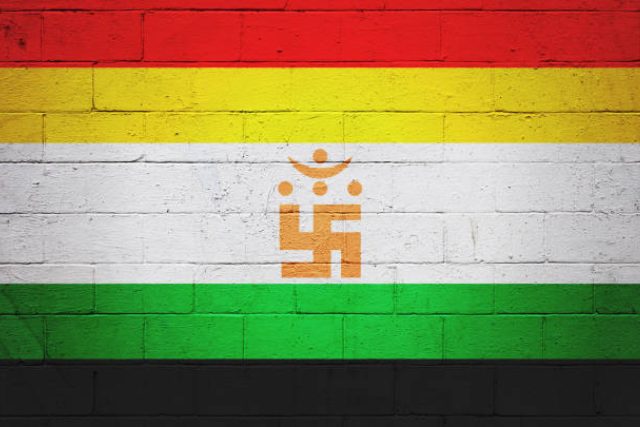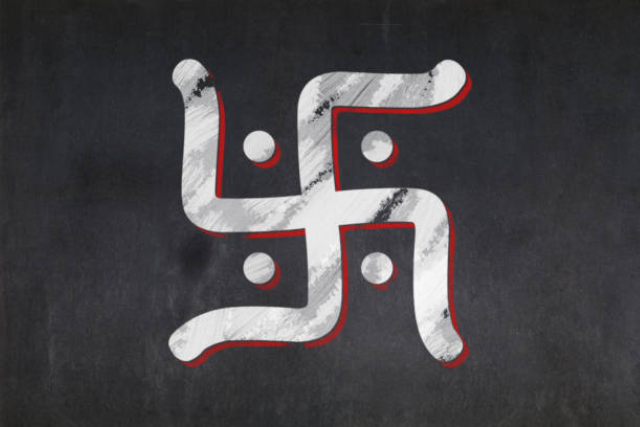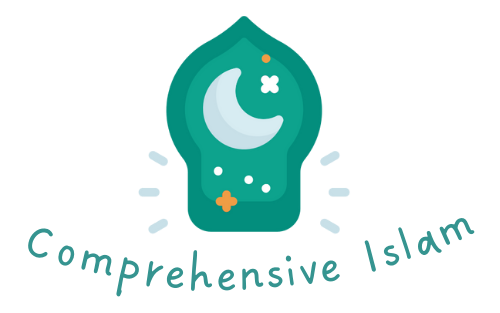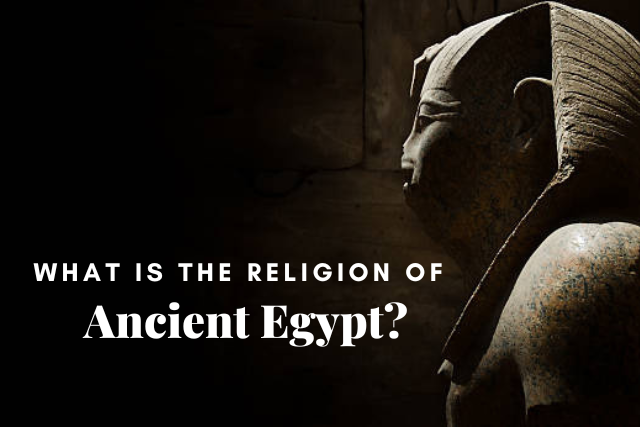What is the Religion of Jainism | 6 Interesting Fact

Let’s explore what makes Jainism special. “What is the Religion of Jainism?” is all about the beliefs, principles, and interesting facts that make Jainism unique.
In this article, you’ll learn how Jains live their lives, what they believe, and why Jainism significantly impacts India and beyond.
What is the Religion of Jainism?
Jainism is an ancient religion, going back 2,500 years and originating in India. People who follow Jainism believe in principles such as not causing harm, speaking the truth, refraining from stealing, leading a celibate life, and not getting too attached to material things. They believe that by following these principles, they can liberate themselves from the cycle of birth and death.
Jains also believe in karma, where the good and bad actions you do affect your future life. To achieve the ultimate goal of freedom from this cycle, they strive to lead a life of non-violence and follow a path of spiritual growth.
Jain monks and nuns follow strict rules, and Jains often choose a vegetarian lifestyle to avoid harming animals. While Jainism is not as widespread as some other religions, it has a significant influence in India and other parts of the world where Jain communities exist.
Jainism has 24 important teachers called tirthankaras. The last one was Vardhamana Mahavira, who lived around the same time as Buddha. They both emphasized finding peace through self-control, meditation, and a simple life. This was different from the practices of priests at that time, who were focused on rituals and saw themselves as intermediaries between people and gods.
Nowadays, only a small percentage of India’s population (0.4%) identifies as Jains, making them the smallest religious group after Hindus, Muslims, Christians, Sikhs, and Buddhists.
Six Facts About Jainism

A survey in June 2021 by Pew Research Center found that most Indians don’t know much about Jains and their old customs. The report has six facts about Jains in India.
Fact#1
Jains mainly live in the western part of India, especially in Maharashtra. Even though Jainism started in the eastern region of In India, many Jains moved west around 300 B.C.E., probably looking for better places to live.
Today, 4% of people in Mumbai, which is the capital of Maharashtra, are Jains.
Fact#2
Jains are often more educated and wealthier than most Indians. Many Jains have at least a college degree (34%, while only 9% of the general population does), and most of them are in the top wealth groups in India.
Jains don’t follow the same caste patterns as most Indians. While 68% of Indians are part of lower castes, only 20% of Jains identify with these lower caste groups.
Fact#3
Jains follow the rule of ahimsa, which means they don’t harm other living beings. Almost all Jains are vegetarians (92%), and many avoid eating root vegetables because they believe it harms the entire plant.
Fact#4
Even though Jainism and Hinduism have some differences, like how they think the universe was created, Jains feel they have a lot in common with Hindus. However, not many Hindus feel the same way about Jains.
Fact#5
Jains like to live separately from people of other religions and castes. While they are okay with having Hindu neighbors (92%), they are less accepting of Muslims (38%), Christians (46%), Sikhs (55%), and Buddhists (58%). Most Jains also prefer their friends to be Jains (72%).
Fact#6
In politics, Jains mostly support the Bharatiya Janata Party (BJP). About 70% of Jains feel closest to the BJP, which is more than other religious communities. This political choice connects with their views on religion and being Indian, where many Jains think being Hindu is crucial to being truly Indian (44%).
These attitudes might be because Jains tend to know more about Hindus than Hindus know about Jains. For example, 30% of Jains say they know a lot about Hinduism, while only 3% of Hindus say they know a lot about Jainism.
How Jainism and Hinduism are Different?
Let’s talk about how Hinduism and Jainism are different. Jainism is all about important ideas like not hurting anyone, being open-minded, not getting too attached to things, and living a simple life.
Hinduism, considered one of the oldest religions, is often called “the eternal way.” Exploring the differences between Hinduism and Jainism helps us understand the basics and see how they are similar and different.
The big differences between Jainism and Hinduism are:
Jainism

- Creation Belief: Doesn’t believe the universe was created by one God (Brahma); believes the Universe itself is eternal.
- Soul Concept: Believes every soul is the Supreme Soul; goal is to separate the soul from bad karma and attain moksha.
- View on Violence: Rejects violence; strongly believes in non-violence.
- Sects: Has two main groups: Svetambara and Digambara.
- Festivals: Celebrates important festivals like Paryushana, Mahavira Janma Kalyanak, and others.
- Deities: Worships 24 Tirthankars and celestial beings as DemiGods; Mahavira was the 24th Tirthankara.
- Caste System: No division based on castes and class.
- Dietary Practices: Strictly forbids non-vegetarian diets, including eggs.
Hinduism

- Creation Belief: Thinks the Universe was created by Brahma.
- Soul Concept: Believes the soul is separate from the Supreme Soul (Parmatma) and aims for moksha, the merging of the soul back into the Supreme Soul.
- View on Violence: Believes in non-violence but allows it if necessary for good reasons (e.g., Mahabharat or Ramayan).
- Denominations: Has four major groups: Shaktism, Shaivism, Vaishnavism, and Smartism.
- Holy Days: Celebrates numerous holy days for different Gods, like Ganesh Chaturthi, Mahashivaratri, and more.
- Deities: Worships many Gods such as Ganapathi, Shiva, Vishnu, Lakshmi, and others.
- Caste System: Recognizes different castes and classes.
- Dietary Practices: Includes both vegetarian and non-vegetarian diets.
However, many things are common in both religions. Here are some things that Hinduism and Jainism have in common:
- Both believe in the idea that after we die, we are born again in a new life.
- They both say it’s important not to hurt others.
- They both think it’s good to eat only plant-based foods.
- Both think it’s helpful to spend quiet time thinking deeply.
- People in both religions celebrate special occasions like Diwali.
- They both talk about ideas like getting free from the cycle of life and death, the cycle of existence, and the consequences of our actions.
- They both agree that it’s okay to use violence only to protect yourself.
FAQs
Is Jainism the oldest religion?
No, Jainism is ancient, but not the oldest. Hinduism is considered the oldest religion.
What are the basic beliefs of Jainism?
Jainism’s main beliefs include non-violence (ahimsa), truthfulness, non-attachment, and respect for all living beings, no matter how small.
What type of religion is Jainism?
Jainism is a unique belief system that doesn’t follow the idea of a god creating or controlling the universe. It sees the universe as eternal, with no creator, ruler, judge, or destroyer. This sets it apart from Abrahamic religions and certain forms of Hinduism but aligns more with Buddhism.
Is Jain an atheist?
Over time, Jain thinkers have consistently rejected the idea of a powerful creator god. Because of this, Jainism has been labeled as a philosophy without a belief in a god (called nastika darsana), distinguishing it from other religious viewpoints.
Do Jains have a holy book?
The Sacred Books of Jainism are known as Agams or Agam Sutras. These texts contain the teachings of Lord Mahavir, compiled in an organized way by his followers.
Summing Up
So, in our journey through Jainism, I’ve discovered its principles, the wisdom of its teachers, and what makes it different from Hinduism.
Whether it’s the shared beliefs or the things that make Jainism stand out, it’s clear that Jainism is more than a religion.
It’s a way of life that values simplicity, kindness, and spiritual growth. The next time someone asks, “What is the Religion of Jainism?” you’ll have a fascinating story about a tradition that has stood the test of time.




